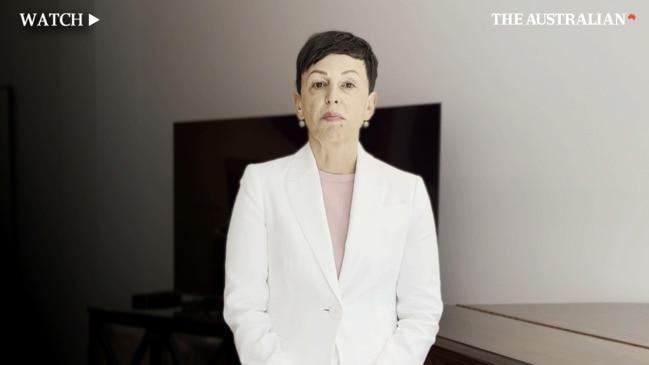Fewer managers, more musicians: ex-BBC Philharmonic chief Richard Wigley vows to ‘refocus’ Melbourne Symphony Orchestra
The former general manager of the BBC Philharmonic Orchestra will swing the axe and cut jobs at the MSO following the fallout from pianist Jayson Gillham’s comments about the Israel-Gaza conflict.

The Melbourne Symphony Orchestra is to axe management jobs as it wrestles with an ongoing deficit and the financial fallout over its response to pianist Jayson Gillham’s on-stage comments about the Israel-Gaza conflict.
In a candid interview, new MSO CEO Richard Wigley characterised himself as a career troubleshooter and revealed a restructure of the flagship orchestra was already under way. “We’re undergoing a restructure at the moment to refocus the company, also to look at our costs,’’ he said.
“Because we are looking at ongoing costs, we will have a headcount reduction.”
Mr Wigley, a former general manager of the BBC Philharmonic Orchestra, went on to reveal the job cuts – comprising 10 or 11 positions – would be achieved through “natural” resignations “and potential role redundancies” from within the orchestra’s management and administrative ranks.
“We’re going from mid-50s to mid-40s (in those ranks),’’ he said, adding: “So that’s a more challenging moment to play out.’’

In contrast, the former bassoonist planned to boost the number of MSO musicians.
The New Zealand-born CEO said the “the orchestra has been running what I perceived to be an ongoing operational deficit. So that needed correcting’.’
He also revealed that in 2024, the MSO incurred “one-off”’ litigation costs and expenses related to the postponement of large-scale concerts featuring contemporary artists The Cat Empire and Jet, who said they delayed their gigs with MSO in solidarity with Gillham. The Cat Empire concert had been sold out.
Mr Wigley refused to comment on the Federal Court action Gillham launched against the MSO after the pianist claimed during an August concert that Israel was intentionally killing Palestinian journalists in the Israel-Gaza conflict.
The MSO cancelled a subsequent concert featuring Gillham, stating its stages were not “a platform for expressing personal views”. However, following a reported backlash from its musicians and some subscribers, the orchestra conceded the cancellation was an “error”.
In the wake of the controversy, then managing director Sophie Galaise departed and there was a board shakeup, with long-time board chair David Li being replaced by Edgar Myer.
Ms Galaise lodged a Fair Work complaint over her departure and has reportedly reached a financial settlement with MSO.

In the Federal Court, Gillham has claimed he was discriminated against for expressing his political beliefs, while the orchestra has argued its actions were “lawful”, as the pianist did not meet the legal definition of a “contract worker”.
“I won’t comment on that,’’ said Mr Wigley, pointing out the case is ongoing.
The newly minted MSO boss, who stepped in as interim CEO between September and November, held management roles at Manchester’s Halle Orchestra and the BBC Philharmonic Orchestra. “Coming in (and) making rapid changes is something that I’ve done throughout my career. I’m not daunted by it. I’m excited by it,’’ he said, adding that the MSO was a “great orchestra, great bones. Obviously, some significant issues to work through. But no, I’m honoured and thrilled to be here”.
He said he had been referred to as the “Red Adair of orchestras, which is a bit old-fashioned, but I get it’’. (Paul “Red” Adair was a legendary American firefighter.)
Mr Wigley pledged to boost the number of strings players employed by the flagship orchestra and increase its reach by performing in underprivileged Melbourne suburbs. He said that in the past “the numbers (of musicians) have been reduced, particularly in the strings. So I want to bring that back to full strength, because that’s the DNA of this orchestra, the power of the string body”.
After former federal arts minister Peter Garrett pulled out, KPMG is conducting a review probing whether new policies may be needed at the MSO to balance creative rights and freedoms within a risk framework.
While not wanting to pre-empt the review, Mr Wigley said “we’re working hard to ensure we have greater accountability”, including accountability on the part of management and towards audiences. “Already cultural change is pervading the company. So we’re not sitting on our hands waiting for that review, but I also look forward to that review.’’
He said the MSO “reached our target on subscriptions or packages (for 2025) … The Melbourne public is super supportive of the MSO, no question”.
Mr Wigley insisted morale among the orchestra’s musicians was “fantastic”. An international tour he described as “an A orchestra tour” was being planned for 2025, and to fund it the orchestra would dip into its reserves, with the board’s approval.






